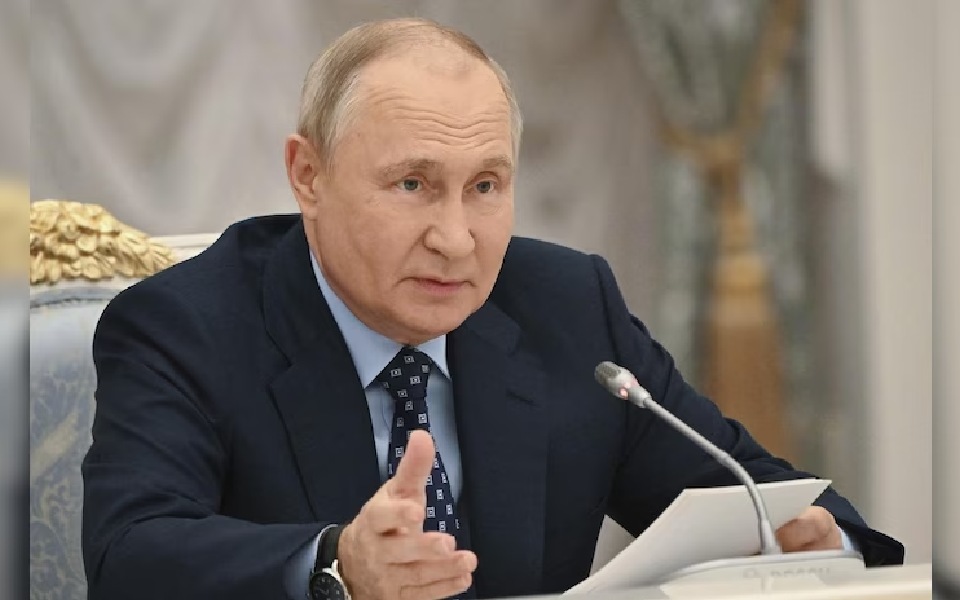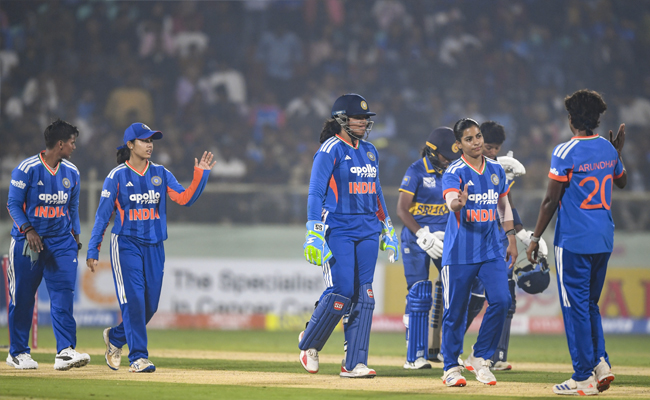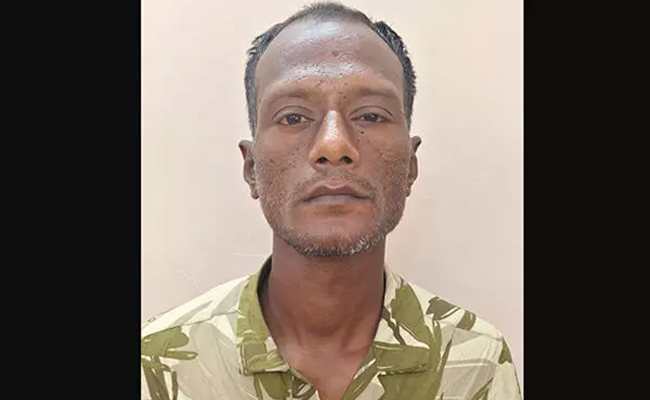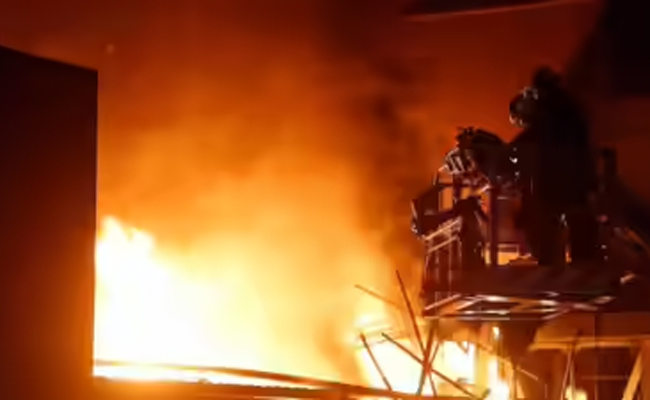Moscow, Nov 19: Russian President Vladimir Putin on Tuesday signed a revised nuclear doctrine declaring that a conventional attack on Russia by any nation that is supported by a nuclear power will be considered a joint attack on his country.
Putin's endorsement of the new nuclear deterrent policy comes on the 1,000th day after he sent troops into Ukraine on Feb 24, 2022.
It follows US President Joe Biden's decision to let Ukraine strike targets inside Russia with US-supplied longer-range missiles.
The signing of the doctrine, which says that any massive aerial attack on Russia could trigger a nuclear response, reflects Putin's readiness to threaten use of the country's nuclear arsenal to force the West to back down as Moscow presses a slow-moving offensive in Ukraine.
Asked about whether the updated doctrine was deliberately issued on the heels of the US' decision to ease restrictions on Ukraine using its longer-range missiles to strike Russia, Kremlin spokesperson Dmitry Peskov said the document was published “in a timely manner” and that Putin instructed the government to update it earlier this year so that it is “in line with the current situation”.
Putin first announced changes in the nuclear doctrine in September, when he chaired a meeting discussing the proposed revisions.
The new version of the document states that an attack against his country by a nonnuclear power with the “participation or support of a nuclear power” will be seen as their “joint attack on the Russian Federation”.
It doesn't specify whether such an attack would necessarily trigger a nuclear response. It mentions the “uncertainty of scale, time and place of possible use of nuclear deterrent” among the key principles of the nuclear deterrence.
At the same time, it spells out conditions for using nuclear weapons in greater detail compared to the previous version of the doctrine, noting they could be used in case of a massive air attack involving ballistic and cruise missiles, aircraft, drones and other flying vehicles.
The wide formulation appears to significantly broaden the triggers for possible nuclear weapons use compared with the previous version of the document, which stated that Russia could tap its atomic arsenal if “reliable information is received about the launch of ballistic missiles targeting the territory of Russia or its allies”.
The revised doctrine envisages that Russia could use nuclear weapons in response to aggression against its ally Belarus.
Belarus' authoritarian President Alexander Lukashenko, who has ruled the country with an iron hand for more than 30 years, has relied on Russian subsidies and support. He has let Russia use his country's territory to send troops into Ukraine and allowed the Kremlin to deploy some of its tactical nuclear weapons in Belarus.
Let the Truth be known. If you read VB and like VB, please be a VB Supporter and Help us deliver the Truth to one and all.
Pilibhit (PTI): A 19-day-old elephant calf, brought from Bijnor, was placed under care at the Pilibhit Tiger Reserve (PTR) on Sunday, an official said and added that the calf got separated from its mother in the forest area of Bijnor.
The calf was born on December 2 in the Bijnor forest area and got separated from its mother shortly after birth, the official said.
The forest department made several attempts to reunite it with its mother, but without any success. To ensure the calf's safety and better care, it was decided to transfer it to the Pilibhit Tiger Reserve on the instructions of senior officials.
On Saturday, Deputy Director Manish Singh received the calf. Special arrangements have been made in the reserve for its care. It has been kept in a safe and clean environment to provide it with a natural setting and protect it from external noise and disturbances.
Singh told reporters that raising an 19-day-old calf is challenging.
It requires a special diet as a substitute for mother's milk and constant monitoring.
He said a special team has been formed to provide 24-hour care. Since the calf is very young, it is being cared for like a newborn baby.
According to Singh, the primary responsibility for monitoring the calf's health has been entrusted to PTR's veterinarian, Dr Daksh Gangwar. Under his supervision, a complete record of the calf's health checkups, diet, and body temperature is being maintained. The team is ensuring that the calf does not contract any infection.





